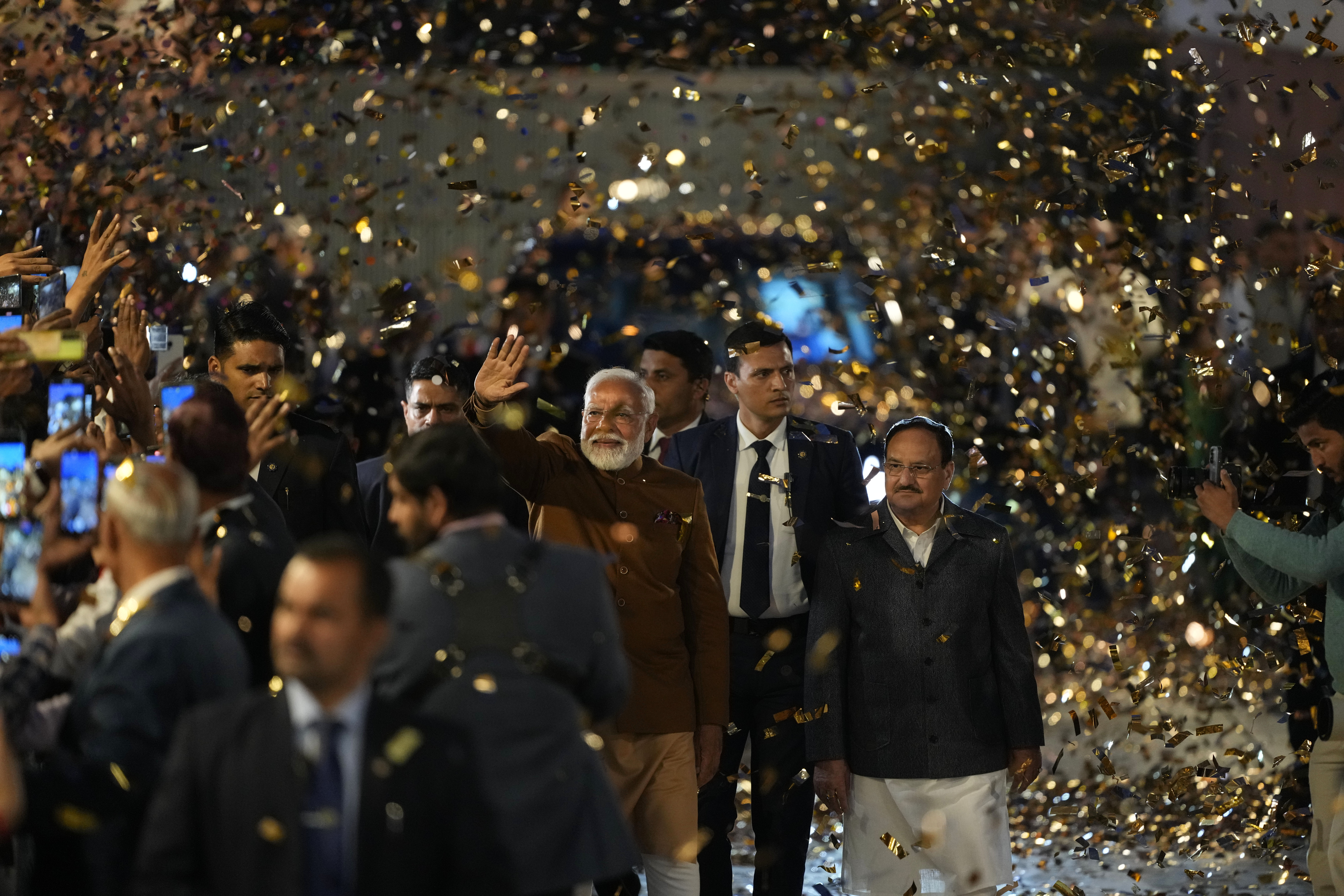
Indian Prime Minister Narendra Modi's Bharatiya Janata Party has swept to victory in a crucial legislative assembly election in India's national capital, New Delhi, after 27 years, an outcome that analysts see as a significant boost for the BJP and will reinforce Modi's popularity across the country.
The BJP won 48 seats, surpassing the 35-seat majority threshold needed to form government in the 70-member assembly. The incumbent Aam Aadmi Party or AAP secured 22 seats, while
India's main opposition party, the Indian National Congress or INC failed to win a single seat for the third consecutive term, according to data from the Election Commission of India.
"Development wins, good governance triumphs," Modi posted on X, assuring that his party would leave "no stone unturned" in developing Delhi and improving quality of life for the people.
ALSO READ: Clash of the handouts as Modi's BJP seeks to reclaim Delhi after decades
Arvind Kejriwal, the two-time chief minister of Delhi and founder of the AAP, conceded defeat on Saturday afternoon while vote counting was still underway and vowed that his party would play the role as a constructive opposition.
"Today, the results of the Delhi elections have been announced, and we humbly accept the people's verdict. The decision of the people is paramount, and we respect it," Kejriwal said in a video statement. He expressed hope that BJP would fulfil its election promises. "We have done a lot of work in the field of health, education and infrastructure in the last 10 years," Kejriwal added.
Despite AAP's strong focus on welfare policies, in a major unexpected result, Kejriwal and his deputy Manish Sisodia, lost their seats. Chief Minister Atishi managed to win her seat by a whisker.
Soon after the vote counting began and as BJP's victory became evident, party supporters erupted in celebrations outside the BJP headquarters in Delhi, chanting slogans, dancing, waving party flags and posters of Modi. They were raising slogans of "Modi Modi" along with bursting firecrackers.
During its ten-year rule, AAP has been facing significant political challenges in recent times, as key leaders, including Kejriwal, were arrested on charges of receiving bribes from a liquor distributor, which the party has denied, stating the charges were politically motivated.
Kejriwal, who was forced to resign as chief minister, is currently out on bail. BJP's victory also comes amid reports of AAP leaders defecting to Modi's party.
AAP, a much smaller and newer political party, founded in 2012, has governed the national capital since 2013 and was seeking a victory for the third consecutive term.
New Delhi, a city of over 30 million people is a federal territory where BJP had not won since 1998 despite having a strong support base in New Delhi and securing many assembly elections over the past ten years.
READ MORE: India's Modi looks to new economic playbook as risks mount
INC, which governed the national capital for 15 years, defeated BJP in the 1998 Delhi election.
The election in the national capital was a major challenge for Modi and the victory is seen as a major boost for the BJP as it lost many seats in last year's general election, lost its absolute majority and was forced to form the government relying on smaller regional parties.
Tanvir Aeijaz, a professor in Ramjas College at the University of Delhi, pointed out two major reasons behind BJP's victory. One, BJP, as compared to other parties, was ahead in competitive freebies and two, Modi's party slashed income taxes on the salaried middle class in the recent federal budget which was a major relief for a large section of voters, Aeijaz said.
For AAP it had to fight anti-incumbency, corruption charges and its own party fatigue, the professor added.
On the campaign trail, both Modi and Kejriwal promised to overhaul government schools and provide free health care and electricity, along with a monthly stipend of about USD $24 to poor women.
People in Delhi wanted a change after ten years of AAP rule wherein BJP emerged successful due to its effective campaigning and promise to offer civic amenities and relief. BJP has a team of dedicated workers who campaign effectively, while opposition political parties lack this strength, according to Prof Karori Singh, former director and emeritus fellow of the South Asia Studies Centre at India's University of Rajasthan.
READ MORE: Indian PM Modi gets a big boost with Maharashtra win
Another significant aspect of this victory is that it reinforces Modi's popularity across the country. Singh emphasized that India's opposition cannot defeat BJP unless it unites, but given their ideological differences, such unity remains highly unlikely in the near future.
"The public has punished AAP for its corruption and failure to not fulfill its promises. BJP will meet all of its promises and will make Delhi the most developed and prosperous state in the country," Ramvir Singh Bidhuri, a Member of the Indian Parliament from South Delhi, told this correspondent.
The writer is a freelance journalist for China Daily.


